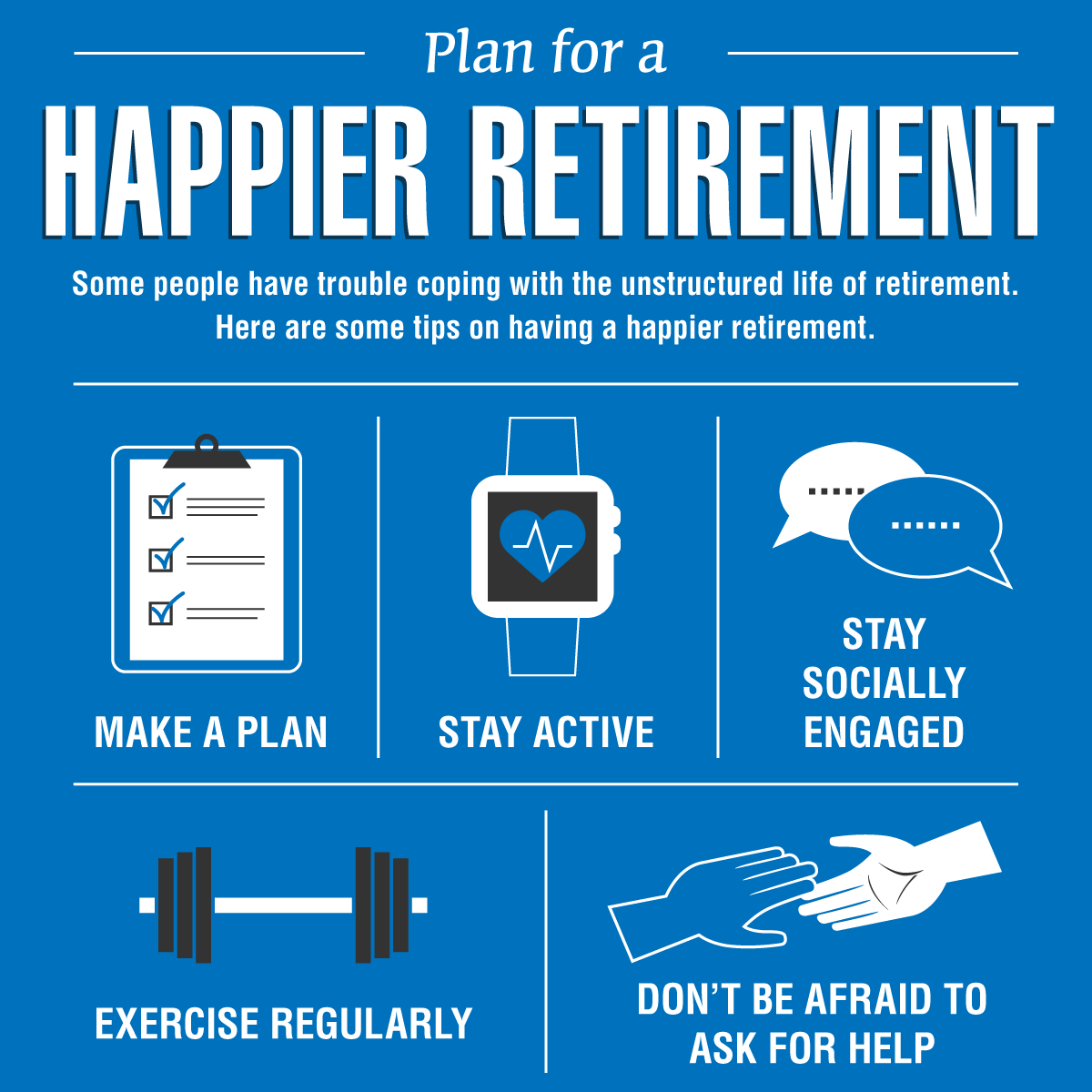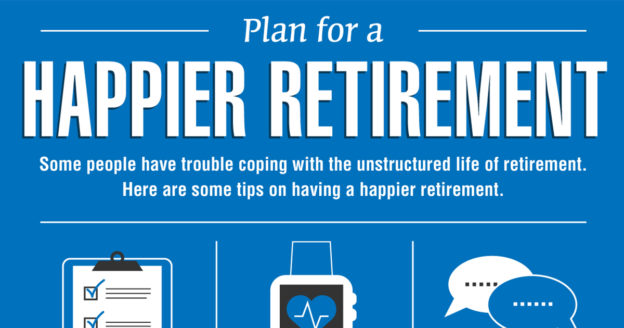When people talk about retirement planning, they’re usually talking about money. But there’s another aspect that people often forget: what will you do with all that newfound free time? After decades of hard work, the thought of sleeping late and taking it easy is pretty attractive. But the transition to retirement is a big deal, and many retirees don’t consider the psychological aspects of the change. We’ve gleaned some advice from professional sources.

Create a Plan and Schedule
However you feel about your job right now, it’s an important part of your life. It provides structure, mental stimulation and social interaction. Retiring can leave a void, and streaming the latest shows or making frequent trips to the grocery store may not be enough to fill it. Empty or aimless hours can lead to boredom, disenchantment and even depression.
You may have a long list of things to do, places to go, and hobbies to take up, but if you don’t decide where to begin, it can be hard to get started. You’ll need to actively plan your activities and create a schedule to successfully manage your time in retirement. Write down how you’d like to spend each day of the week, blocking out time for chores, social engagements, hobbies and exercise. Sticking to a schedule can keep your days structured and give you a sense of accomplishment.
Stay Engaged
For many people, staying busy and remaining socially engaged are essential to a satisfying transition to retirement. That’s one reason why some retirees take on part-time or seasonal jobs.
A job in retirement doesn’t necessarily mean continuing to do the same old thing. Retirement is an opportunity to reinvent yourself. Do something you’ve always wanted to do, something fun and challenging.
Maybe the job for you is one that doesn’t pay at all, at least monetarily. There are countless organizations looking for volunteers.
Volunteering just a few hours a week will give you something to look forward to and keep you connected to the outside world, which can improve both your mental and physical well-being.
Exercise Your Body and Brain
Regular exercise not only keeps you physically fit — it also increases your sense of well-being. Whatever you do to exercise, make it part of your regular schedule. Consider taking a fitness class at a local gym, which also adds a social element to your workout. Maybe you can up the ante by trying something new, like a martial arts class.
Don’t forget to exercise your brain. A course or workshop can help you discover a new side to yourself (the painter, the mystery writer, the master of topiary). You may even want to enroll in classes at a local community college or return to school full-time.
Whatever you do, make sure it’s part of a plan — a plan for a happier retirement.


I’m very conscious of letting the mind “settle” during retirement. I’ve already started forward planning and have created a small business to keep my brain occupied. I won’t expecting to be managing this full time but it’s something to keep busy with as and when required.
I am 58 years old with only 22 years in at this job. I have to go to 62 years old in order to avoid being penalized. Has anyone regretted not retiring sooner? How much money do you really need to live a comfortable life? I know everyone has different expectations, but is it a million dollars? Is it two,three or more?
It’s scary when you see the price of eggs jump up to $6 a dozen. How do you plan for something like that? I’m really trying to not get political and get censored. So, I guess I will leave it at that.
You’re not alone in your thinking. Your unique situation will help you decide. If you have a family member who needs help, you’ve saved enough outside of a pension, and have practiced living on the amount you would receive in retirement and are comfortable with it, early retirement may be an option. Look for the Early Age Reduction Chart for the penalty each month you would retire early. But don’t live your life fearing early death, you may live long! Move to a place where you can have chickens so you will always have eggs and grow your food like they did in times of trouble. I have an older spouse and decided to work until 62, but early retirement has crossed my mind. Good that you’re thinking this through now.
My husband retired in 2020 during Covid after 36 years as an DPW County Employee and died suddenly in Feb 2023 so will advise you all to live each day to your fullest and do anything you think important or take that trip you always wanted to take, as you never know when your last day will be. Fondly, Charles Widow Helen of 32 yrs
Thank you for sharing your story. We’re very sorry for your loss.
Retired 3 yrs ago. I have found that sitting down with my hubby at the end of every month to plan and discuss the next month has worked for us. It’s really messy when we don’t do this. Lol
That’s a good tip!
Retiring at age 76 with 35 years in. My plan is only volunteering when I want.
Very important article. I keep busy,some exercise,I see friends-still there are times when I miss work and the friendships. Yes,make a plan and be flexible.
Excellent advise… programmed slow down…